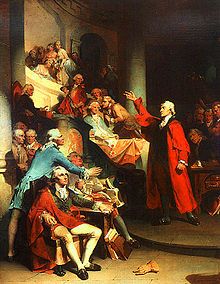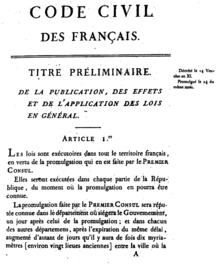“Punting the Pundits” is an Open Thread. It is a selection of editorials and opinions from around the news medium and the internet blogs. The intent is to provide a forum for your reactions and opinions, not just to the opinions presented, but to what ever you find important.
Thanks to ek hornbeck, click on the link and you can access all the past “Punting the Pundits”.
Follow us on Twitter @StarsHollowGzt
Chris HedgesL Journalism as Subversion
The assault of global capitalism is not only an economic and political assault. It is a cultural and historical assault. Global capitalism seeks to erase our stories and our histories. Its systems of mass communication, which peddle a fake intimacy with manufactured celebrities and a false sense of belonging within a mercenary consumer culture, shut out our voices, hopes and dreams. Salacious gossip about the elites and entertainers, lurid tales of violence and inane trivia replace in national discourse the actual and the real. The goal is a vast historical amnesia. [..]
As the mass media, now uniformly in the hands of large corporations, turn news into the ridiculous chronicling of pseudo-events and pseudo-controversy we become ever more invisible as individuals. Any reporting of the truth-the truth about what the powerful are doing to us and how we are struggling to endure and retain our dignity and self-respect-would fracture and divide a global population that must be molded into compliant consumers and obedient corporate subjects. This has made journalism, real journalism, subversive. And it has made P. Sainath-who has spent more than two decades making his way from rural Indian village to rural Indian village to make sure the voices of the country’s poor are heard, recorded and honored-one of the most subversive journalists on the subcontinent. He doggedly documented the some 300,000 suicides of desperate Indian farmers-happening for the last 19 years at the rate of one every half hour-in his book “Everybody Loves a Good Drought: Stories From India’s Poorest Districts.” And in December, after leaving The Hindu newspaper, where he was the rural affairs editor, he created the People’s Archive of Rural India. He works for no pay. He relies on a small army of volunteers. He says his archive deals with “the everyday lives of everyday people.” And, because it is a platform for mixed media, encompassing print, still photographs, audio and film, as well as an online research library, it is a model for those who seek to tell the stories that global capitalism attempts to blot out.
Katrina vnaden Heuvel: Adolescents Do Not Belong in the Adult Legal System
Currently, only New York and North Carolina automatically treat 16- and 17-year-old offenders as adults in the criminal-justice system. This means that New York is one of just two states in the country that has failed to recognize what research and science have confirmed-namely, that adolescents are children, and that placing them in the adult criminal-justice system doesn’t work for them and doesn’t work for public safety. Not only is it immediately cruel to incarcerate children along with hardened adult offenders, it also destroys their future prospects: children who go through the adult system are more likely to reoffend and less likely to go on to a productive life.
Acknowledging New York’s exacerbation of the problem, Governor Cuomo included in his 2015-16 Executive Budget juvenile justice reform recommendations from his Commission on Youth, Public Safety & Justice. In a comprehensive plan that would reform New York’s system, Governor Cuomo outlined reforms that will ensure that the state’s legal process provide children with age-appropriate consequences and treatment and thereby improve outcomes for youth, communities and the criminal-justice system as a whole. He must get this proposal passed in the budget this week. There is no time to waste.
Here’s another reminder that “personal responsibility” is a principle relevant only to the poor and the black.
In the wake of the deaths of Mike Brown and Eric Garner, Fox News anchor Bill O’Reilly had some advice for black America: “Don’t abandon your children. Don’t get pregnant at 14. Don’t allow your neighborhoods to deteriorate into free-fire zones. That’s what the African-American community should have on their T-shirts.” (That’s either a very big garment or very small lettering.)
Whenever black kids get shot, black parents get lectured about personal responsibility. If you raised your kids better, goes the conservative logic, we wouldn’t have to shoot them. Arguments about systemic discrimination and racist legacies are derided as liberal excuses for bad behavior. Neither history nor economics nor politics made Mike Brown grab Darren Wilson’s gun-that was his choice. Individuals, we are told, are responsible for their own actions and must be held accountable for them.
The vehemence with which this principle is held is eclipsed only by the speed with which it is abandoned when it becomes inconvenient. Discussions about choices and accountability change tenor when we shift from talking about the black and the poor to the powerful and well-connected.
Paul Buccheit: How Privatization Degrades Our Daily Lives
The Project on Government Oversight found that in 33 of 35 cases the federal government spent more on private contractors than on public employees for the same services. The authors of the report summarized, “Our findings were shocking.”
Yet our elected leaders persist in their belief that free-market capitalism works best. Here are a few fact-based examples that say otherwise. Broadcast Journalist Edward R. Murrow in 1955: Who owns the patent on this vaccine?
Polio Researcher Jonas Salk: Well, the people, I would say. There is no patent. Could you patent the sun?We don’t hear much of that anymore. The public-minded sentiment of the 1950s, with the sense of wartime cooperation still in the minds of researchers and innovators, has yielded to the neoliberal winner-take-all business model. [..]
Privatization places profits over people. Average Americans are the products, and few of us see any profits.
Juan Cole: All the Wars and Coups of President Ted Cruz
Texas Senator Ted Cruz, one of three Cuban-Americans in the Senate, is throwing his hat into the ring for the 2016 presidential race today. Cruz has made a career out of slamming President Obama for being weak and presiding over the collapse of countries like Yemen (as though Cruz could have done anything about that if he had been president. I figure if you total them all up, Cruz has called for six or seven strong US interventions abroad, whether in the form of invasions, air strikes, or covert coups d’etat. It is hard to tell exactly, since he doesn’t typically demonstrate any detailed knowledge of the situation and just wants to take a “strong posture” rather than detailing any practical steps. [..]
In a way the most dangerous Ted Cruz war of all is on the earth’s environment, since he favors increasing the carbon dioxide being put into the atmosphere by humans burning fossil fuels and is a global warming denialist. Given that humanity has only a couple of decades to make the changes necessary to keep warming in the 3.5 degrees F. range (already pretty bad), a Cruz presidency would probably be enough in and of itself to drive us to a five degree increase.
Robert Fisk: Stephen Harper Should Arrest Himself
And while he’s at it, he can lock up all the other Western leaders who have savaged the Muslim world too
Is Stephen Harper off his rocker? Forget his trip to Jerusalem last year when the Canadian prime minister said that criticism of Israel was a “mask” for anti-Semitism. Ignore his utter failure to bring home to Canada al-Jazeera journalist Mohamed Fahmy, whose retrial was staged by the Egyptian government to give him the chance to leave for his country of adoption. Cast aside Harper’s Blair-like contention that the Islamist murders of Canadian soldiers had nothing – absolutely zilch – to do with his decision to send Canada’s F-18 jets against Isis.
Now Harper, the man with the choir-boy good looks whose pro-Israeli policies might win him a seat in the Knesset, is about to push a truly eccentric piece of legislation through parliament in Ottawa. It’s called – and I urge readers to repeat the words lest they think it’s already April Fool’s Day – the “Zero Tolerance for Barbaric Cultural Practices Act”. Yup, when I first read the phrase “Barbaric Cultural Practices Act”, I felt sure it was a joke, a line from the “Big Bang Theory” or a Channel 4 mockudrama about Nigel Farage’s first premiership.
Nope. It’s all real. But let me quickly explain that the “Barbaric Cultural Practices” in question are polygamy, “gender-based” family violence, “honour-killing” and forcing children under 16 to leave Canada for marriages abroad. I’ve no problem with legislation against this, of course. Nor have most Canadians.

 On this day in 1989,
On this day in 1989,  The
The  Exxon Valdez left the
Exxon Valdez left the  In 1991, following the collapse of the local marine population (particularly clams, herring, and seals) the
In 1991, following the collapse of the local marine population (particularly clams, herring, and seals) the  On this day in 1775,
On this day in 1775,  On this day in 1784, the
On this day in 1784, the  Welcome to the Stars Hollow Gazette‘s
Welcome to the Stars Hollow Gazette‘s 
 On this day in 1804,
On this day in 1804,
Recent Comments